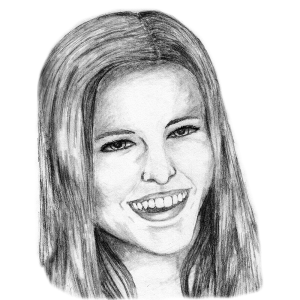 As a nostalgic second-semester senior, I’ve started to think about the most important lessons I’ve learned on the Hilltop in preparation for life when I head off to graduate school. And, after careful reflection and discernment, I’ve decided the most important thing I’ve learned is the value of stories.
As a nostalgic second-semester senior, I’ve started to think about the most important lessons I’ve learned on the Hilltop in preparation for life when I head off to graduate school. And, after careful reflection and discernment, I’ve decided the most important thing I’ve learned is the value of stories.
When we think of stories, we often think about what we learn from late-night conversations in the common room, Alternative Spring Break, ESCAPE or any other reflective opportunity. These are the conversations in which we gain a better understanding of our peers through their experiences.
These stories are massively important.Every member of the Georgetown community has a story to tell, and we can learn from each one. And through these collective stories, we learn that there is no single human experience. A little known fact: The collective human experiences feature enough knowledge probably to freeze even NASA and Google’s shared quantum computer.
As much as we’ve been encouraged to listen — in class, to your parents or in the ways mentioned above — it’s important to realize that listening is always most genuine in the context of a well-crafted story.Depending on who you are, you may be fascinated by different kinds of stories. I have always been curious about the sciences, mostly because I’m often whelmed when I think of all the grace (and probably lucky coincidence) that’s gotten me to where I am today. I have had access to parents who are chemists and know their subject so well that it was table talk growing up.
But I know a lot of people don’t think of science that way. In my experience, I’ve found that a lot of my peers don’t like math or the sciences because a bad middle or high school teacher convinced them that they were bad at it. That’s a real shame but also evidence that bad storytelling can be just as influential as good storytelling.
My favorite classes here have been taught by professors who are expert storytellers in addition to being masters of their fields. For example, each time I went to “Science and Technology in a Global Arena” my sophomore spring, professor Charles Weiss told us a story about the hidden impacts of technology in every crevasse of our lives. When I took “Foundations of Biology,” professor Heidi Elmendorf told us the stories of how simple chemicals, their bonds and their reactions create and sustain life. And even as a second-semester senior, I love attending my seminar on water, where professor Mark Giordano brings us a new dimension about water and its management every day. These professors (and more) have encouraged me to ask questions and dig deeper until I’ve squeezed each story as dry for information as I possibly could in a semester.
We don’t really think of science as a story, but in some ways it’s the greatest narrative of all. Science is a discipline made of curiosity, trial and so many errors. Scientific fields are spearheaded with characters who simply can’t stifle their need to know more about the world around us and within us; they toil and struggle to find solutions to the most complex problems; they compete to file patents, and sometimes their work leads them to terrifying conclusions or even their own death. It’s a drama more theatrical than “Grey’s Anatomy,” which I watch every week. But it all comes down to how it’s communicated.
Stories can evoke change, start wars and end them. Given that science and technology dominate so much of who we are and the qualities of our lives — no matter how directly or indirectly — I truly believe that the next great challenge will be understanding how to tell science stories in ways that lure the audience in to care about the challenges that this century will face, like climate change, super bugs or ever-mutating cancer.
I am so fascinated. Ordinarily, you need a qualifier, but for me it’s a state of mind. So pay attention to all the stories you may hear on the Hilltop, and listen well. Remember how they were told, and recreate the magic when you build your own. I know so many Georgetown students who can evoke tangible, positive change in the world. We just have to tell the right kind of story to captivate an audience.
Katherine Foley is a senior in the School of Foreign Service. This is the final appearance of CURIOUS BY NATURE this semester.



















